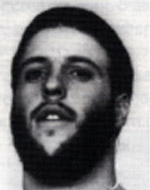A third son to his parents Naomi and Zvika, and a younger brother to Moran, was born on July 1, 1964. Nitzan grew up in Kibbutz Malkiya on the Lebanese border, and together with his brother absorbed the message they brought with them from the Holocaust and consolidated into an existential base: to be strong and to hate war. Nitzan was educated and grew up in the joint school of education, in the small kibbutz, which is surrounded by fences and gates, next to a hostile mountain range. He completed a regional theoretical school at Kibbutz Dafna, and it was already clear that historical processes, political questions, and mathematical subjects were his most important subjects. Nitzan chose to advance his mission to the movement, and even before he enlisted in the IDF, he worked with himself for a year at the commune of counselors at the Borochov Youth-Worker branch in Givatayim, and directed his children to live in the kibbutz. His political path was realized in the Peace Now movement, and as a member of this movement, he chose to join the Nahal Brigade. By then he had managed to pack in his backpack his love for cattle, and his dedication to guiding young children; His peak experiences in basketball, swimming, and surfing the Hermon snow; His curiosity about the landscapes of the country, his curiosity about the landscapes of the Diaspora, and above all the bad relations that he had with many friends and one friend. But before he turned 20, he saw the last dusk of his life in a training field, and he was on the brink of an officer’s course. On Nisan 5744 (1.5.1984), Nitzan finished commanding a class exercise “to conquer a fortified target,” and with his friend sat down to drink coffee in the encampment where the commanders and paramedics were sitting, while another class performed the exercise in the Torah. The long, persistent resuscitation of the paramedics and the doctors had no chance, but there was also no chance that anyone would believe that he himself had any part in the responsibility for the accident.The company at the graduation party said: “The worst thing is Understand that this time it’s one of ours. In a flash we grew up in a lot of years. This time we ourselves, a friend who was with us in the tent, walked with us on the exhausting journeys, ran with us on the hills and navigated at night, someone who was just like us. Together we went to school together in motion, and he was still and silent, and we were ashamed, looking into his eyes for no longer to see light, and agonizing in agony that we had never learned how to deal with. We lower our heads, and feel a bit ashamed that it is him, and not us under him. It seems that our own suffering is the greatest, even if this is not the case. “In his home, the kibbutz that expanded over the years and raised his sons, and now is devoured by mourning, the members said:” We raised him, we would not do it, only that. ” He was accompanied by songs: Lior wrote: “How we lost you … we will die with you … once and again. Until it was consumed. “Ofer continued:” A day will come, I will not know pain, and you will be a legend … At the end of a paved road. “Moran concluded:” I go down for you, Nitzan, beating your Lev. Hope. On the sides of the road, you discover your secret. “Nitzan continued to struggle for his life, his brother’s life and the life of his friends, and they set out to provoke acts that meant:” No more! ” He begins with the words: “We wrote hope,” and continues: “And the sound of his fall is heard from afar”
